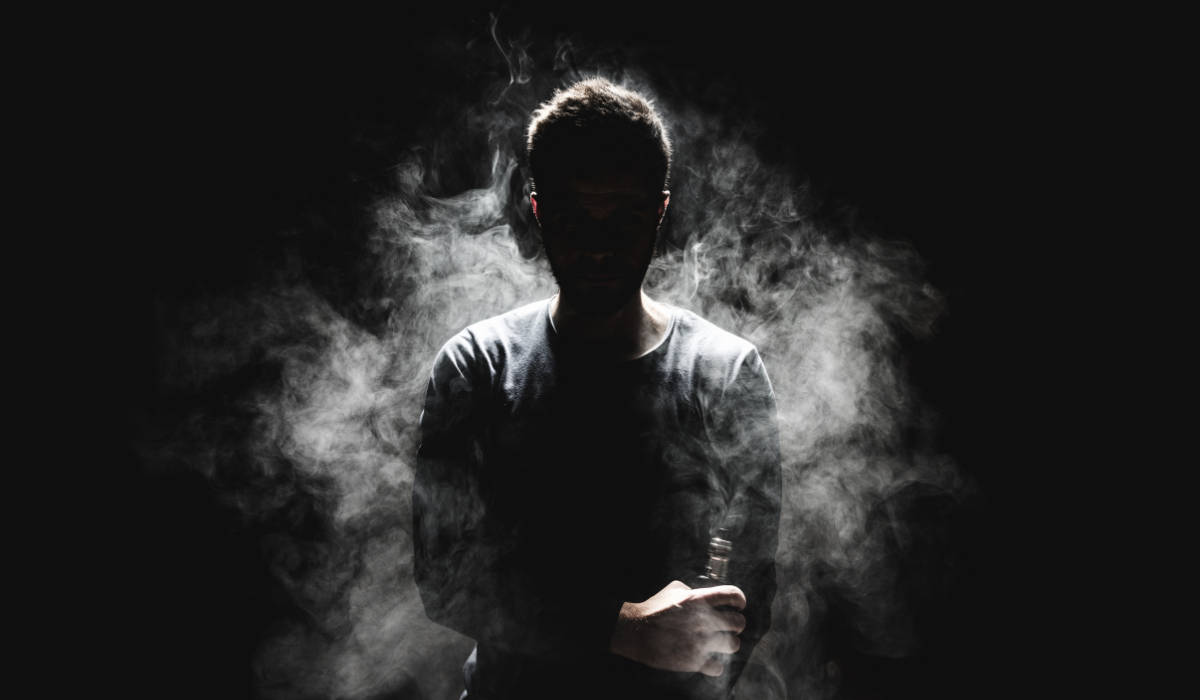Can Vaping Cause Sleep Apnea

Vaping has become a popular alternative to smoking in recent years, but concerns have been raised about its potential health risks. One question that has arisen is whether vaping can cause sleep apnea, a sleep disorder that affects breathing during sleep. In this article, we will explore the relationship between vaping and sleep apnea, and what you need to know to make informed decisions about your health.
What is Vaping?
Vaping is the act of inhaling and exhaling an aerosol, often referred to as vapor, produced by an e-cigarette or similar device. E-cigarettes are battery-operated devices that heat a liquid (usually containing nicotine, flavorings, and other chemicals) to create an aerosol, which is then inhaled into the lungs. Vaping has been promoted as a safer alternative to smoking traditional cigarettes, but its long-term effects on health are still being studied.
What is Sleep Apnea?
Sleep apnea is a sleep disorder characterized by pauses in breathing during sleep. These pauses can last from a few seconds to minutes and can occur multiple times throughout the night. There are three types of sleep apnea: obstructive sleep apnea (OSA), central sleep apnea, and complex sleep apnea syndrome.
OSA is the most common type of sleep apnea and is caused by a blockage of the airway during sleep. This can be due to a relaxation of the muscles in the throat, an abnormality in the structure of the airway, or obesity. Risk factors for OSA include age, obesity, male gender, smoking, and alcohol use.
The Relationship between Vaping and Sleep Apnea
While there is limited research on the relationship between vaping and sleep apnea, some studies suggest that vaping may increase the risk of developing sleep apnea. One study published in the journal Chest found that adults who used e-cigarettes were more likely to have symptoms of sleep-disordered breathing, including snoring and daytime sleepiness, compared to non-users.
Another study published in the journal Sleep found that e-cigarette use was associated with a higher prevalence of snoring and a higher risk of developing obstructive sleep apnea. However, more research is needed to confirm these findings and to understand the mechanisms underlying the relationship between vaping and sleep apnea.
The Effects of Nicotine on Sleep
Nicotine is a stimulant that can disrupt sleep patterns. It can cause difficulty falling asleep, frequent waking during the night, and early morning awakening. Nicotine can also reduce the amount of deep sleep, which is important for physical and mental restoration.
In addition, nicotine withdrawal can also affect sleep. People who are trying to quit smoking or vaping may experience insomnia, vivid dreams, and other sleep disturbances.
The Effects of E-Cigarette Aerosols on Sleep
E-cigarette aerosols can contain a variety of chemicals, including flavorings, propylene glycol, glycerin, and heavy metals. Some of these chemicals may be harmful to the respiratory system and may affect sleep quality.
For example, a study published in the journal Sleep Medicine found that exposure to e-cigarette aerosols containing flavorings and propylene glycol reduced sleep quality in rats. The researchers suggested that these chemicals may irritate the respiratory system and cause inflammation, leading to sleep disturbances.
Tips for Better Sleep
Getting good quality sleep is essential for maintaining overall health and well-being. If you’re experiencing sleep problems, there are several things you can do to improve your chances of getting a good night’s rest. Here are some tips for better sleep:
1. Stick to a consistent sleep schedule: Go to bed and wake up at the same time every day, even on weekends. This helps regulate your body’s sleep-wake cycle and makes it easier to fall asleep at night.
2. Create a sleep-conducive environment: Make sure your bedroom is cool, quiet, and dark. Use comfortable bedding and pillows, and remove any distractions such as electronic devices or bright lights.
3. Avoid caffeine, nicotine, and alcohol before bedtime: These substances can interfere with your ability to fall asleep and stay asleep.
4. Exercise regularly: Regular physical activity can improve sleep quality and help you fall asleep faster. However, avoid vigorous exercise close to bedtime, as it may make it harder to fall asleep.
5. Manage stress and anxiety: Stress and anxiety can keep you awake at night. Try relaxation techniques such as deep breathing, meditation, or yoga to help you unwind before bed.
6. Avoid eating large meals before bedtime: Eating a heavy meal before bed can make it harder to fall asleep and increase your risk of acid reflux.
7. Seek treatment for sleep apnea if necessary: If you suspect that you have sleep apnea, talk to your doctor. Treatment options may include lifestyle changes, such as weight loss or positional therapy, or medical interventions such as continuous positive airway pressure (CPAP) therapy.
Conclusion
In conclusion, getting good quality sleep is essential for overall health and well-being. Sleep apnea is a common sleep disorder that can have negative effects on sleep quality and overall health. While more research is needed to fully understand the relationship between vaping and sleep apnea, some studies suggest that vaping may worsen existing sleep apnea symptoms. If you have sleep apnea or other sleep disorders, it’s important to prioritize good sleep hygiene and seek medical treatment as needed.
RECENT ARTICLES
